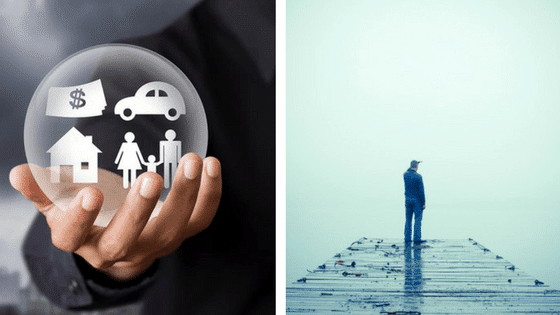
by Maureen Cooper | Sep 13, 2017 | Compassion, Kindness, Meditation, Mindfulness, Relationships, Self-compassion, Stress, Yourself
Are you familiar with the growing popularity of online courses? If you know where to look it is now possible to find a tantalizing variety of learning offered in the form of online courses. Art classes, cookery sessions, language instruction, and all manner of lifestyle topics are now on offer online. It’s an amazing resource!
This year in Awareness in Action we have been delighted to offer our own series of online courses on the topics of self-compassion, working with stress and sustaining your meditation practice. We have several more exciting ideas in the pipeline.
My own exposure to online courses started a few years back when I was asked to facilitate a series of course programmes run by a meditation group in the States. I was immediately sold on the idea when I connected with the people taking the courses and the degree of passion and commitment they brought to their learning. It was this energy that we aim to bring to our own courses in Awareness in Action.
If you have never taken an online course you might have all kinds of assumptions about how they work and how much time they need. In this blog post I want to spell out six inspiring reasons why taking an online course could really work for you—while at the same time being upfront about when they won’t!
Reason 1: the high degree of personal attention each participant receives
We all know how it can be difficult to be heard in a large workshop, where the most confident and articulate people all too easily get the lion’s share of attention. This is not the case with an online course. Each person gets to send in their comments and postings and the facilitator answers each one individually and in depth. When the course facilitator is an expert in their field, this means that every posting becomes a 1-2-1 exchange in which the participant can benefit first-hand from the person who has the answers to their issues. With our courses, you can book SKYPE sessions as an extra if you want to go deeper.
Reason 2: online courses are so accessible
Taking part in an evening class can be a great experience but inevitably there comes an evening when it’s raining, you’ve had a rotten day at work and you just want to go home and have a hot, relaxing bath. Once you’ve missed one session it’s harder to turn up the next week and your participation starts to come unstuck.
This problem simply does not exist with online courses. If you have a good internet connection and a reliable device you can access your course anytime and anywhere. Even if you have to take a work trip, you can still work on your assignment.
Reason 3: online courses help to improve your resumé
Given the fluid nature of the current job market it’s more important than ever to show that you are interested in developing skills that will help you do your job well. The scope of online courses is widening every day and there are many topics to choose from. Even if a course does not include a certificate of completion you can request one at the end of the course and the facilitator will put one together for you that you can include on your cv. This applies equally to younger employees starting out on their career as well as experienced people who want to demonstrate that they wish to keep learning and up-to-date.
Reason 4: being part of a dedicated online community
At the beginning of this piece I mentioned how inspiring I had found it to work with groups of students on online courses. I know of people who have ‘met’ on an online course and arranged to go on to to others so they can stay together as a group. Even now, I am still in touch with people who I have never actually met but who have taken several courses with me.
When you join an online course you have the option to become part of a dedicated group of like-minded people who are interested in some of the things you are interested in. The possibilities for an exchange of views and experiences are endless.
In addition, an online community can act as a support to your individual learning. It’s reassuring to share struggles and insights with people going through the same programme as you are.
Reason 5: online courses are designed to fit into your life
We are all busy people, so we need our learning to come in short, practical modules in order to be able to fit it into our already over-packed schedules.
In Awareness in Action courses, each course is divided into topics and each topic becomes a lesson. However, we go further and break down each lesson into a series of activities, which give the details of each topic. We advise between one and a half and two hours for a lesson. If you find you don’t have that much time to sit with the course in one go, then you have the option to cover a number of activities depending on the time you have available. In that way, you can keep the thread of the course and progress at your own pace.
Reason 6: online courses are great value for money
Given all this, plus the fact that for many online courses you have access to the materials for as long as you wish, their cost is manageable for a wide range of potential participants. Most courses offer a basic fee, with bonuses for early bird sign up. If you want individual coaching you have the option to sign up for more elaborate packages that include these options.
….. and four things to avoid
Anyone wanting to create a vibrant, enthusiastic online course following is only interested in their participants being inspired, and satisfied by their online experience. Over the least year I have seen a few ways in which people can inadvertently undermine their online experience and end up feeling disappointed. Here are four of them.
-
Avoid signing up when you are about to be extra busy
It’s tempting when you see a course that feels just right for you and you just want to get started—you just want to jump right in and sign up. My advice is to take a moment to check your schedule and make sure this is the right time for you to start a course. If you are about to go on a major work trip, or have a baby, or support your kids through their GCSEs then it might be good to wait until the next time the course is offered. Most courses are offered two, or even three times a year. We might think that we can fit in a few minutes of course time in between—and in the general run of a busy life you can—but when it is something major, you will just be too absorbed in what you have to do. The course will fade to a vague feeling of guilt and fizzle out and that’s a pity.
-
Avoid signing up if you are in crisis
Another time to double check is if you are going through a challenging time. Perhaps you are under a lot of pressure at work and think that a course on mindfulness in the workplace is just what you need. Or you have been involved in a big run-in with your boss and you want to take a course on self-compassion to help you regain your equilibrium. If you are ready, then that is fine and the course could help you get through what you are dealing with in a constructive way. Just check that you are not still too involved in the challenge and having to give a lot of energy to managing it. The risk here is that course will come to seem like a possible lifeline that you are just too stressed and worried to access. Then you will have a wistful sense that you have lost out again and this will add to your sense of crisis.
-
Avoid riding on someone else’s inspiration
Last January one of my courses was advertised at a New Year’s Meditation retreat and I was delighted to see several people sign up. Just as the date for registration passed I received an urgent email from someone who had just got home from the retreat and wanted to sign up with her friends, ‘to keep the inspiration going’ she said. Wanting to help I made the necessary changes to the registration process and she signed up for one of the more expensive coaching options. She managed the first few lessons and one of her allocated Skype sessions but then it was time to go back to work. In spite of my best efforts to keep her connected and to allow her extra time to work with the materials her participation became more sporadic and soon fell away altogether.
I realized that she had been caught up in the enthusiasm of the retreat group for the online course and had not really made her own choice to commit to the material. It’s a shame, because she will be much less enthusiastic to sign up for another course after this experience.
-
Avoid signing up for more than one course at a time
Occasionally I come across what I call a ‘professional course-taker’—someone who signs up for everything you have on offer and then does not complete anything fully. This type of person might also have signed up for your courses and courses from other providers at the same time. It’s wonderful to have so much enthusiasm but generally it is hard to convert into quality learning on any of the chosen courses. As has already been said—most course programmes run tow or three times a year, so there is plenty of time to cover all the ground that you wish to cover.
Perhaps some of you reading this blog have already got experience of taking online courses. If so, it would be great to hear how you benefitted and if you have any more ‘things to avoid’ to add to my list. Do be in touch and share your experience.

If you are interested to try an online course, we have a meditation course for beginners running continuously—How To Start Meditation in a Way That Will Last.
You can sign up any time. The link is here

by Maureen Cooper | Mar 31, 2017 | Mindfulness, Self-compassion, Yourself
My recent self-compassionate experience
It was in Barcelona a few weeks ago, that I got a direct lesson on the importance of mindfulness in supporting being self-compassionate. I was there to give a workshop on transforming stress and it was on the second day, after lunch, that I got a choking fit. I had hurried back from lunch and was slightly hyper because I was trying to lift the everyone-wants-a-siesta energy. I took a sip of water and it just went completely wrong. It is easy for me to choke and I am only too aware that if it goes really badly, then it’s possible that I will vomit. Not something any workshop facilitator is looking to do!
I was there to give a workshop on transforming stress and it was on the second day, after lunch, that I got a choking fit. I had hurried back from lunch and was slightly hyper because I was trying to lift the everyone-wants-a-siesta energy. I took a sip of water and it just went completely wrong. It is easy for me to choke and I am only too aware that if it goes really badly, then it’s possible that I will vomit. Not something any workshop facilitator is looking to do!
At first I tried to fight it and just carry on. Then it occurred to me to excuse myself to the bathroom but then people would have come after me and the workshop could unravel. There were a few moments where I just pretended that I wasn’t there but of course that didn’t work either. So, I gave up and just spluttered on until I could find a place to settle my breathing and take a cough sweet. Things slowly settled.
The three elements of self-compassion
Looking at the group I saw a sea of worried, slightly anxious faces. Something needed to be done. As it happens I had been starting to explain the three elements of self-compassion—self-kindness, as an antidote to self-criticism stemming from the fight response; common humanity, as an antidote to self-isolation stemming from the flight response, and mindfulness, as an antidote to self-absorption stemming from the freeze response. I realized that I had already run through the whole fight-flight-freeze stress response in myself, so I decided to try and use what had happened to explain the antidotes and how they work.
Self-kindness came in as allowing myself to acknowledge something unpleasant was happening but not beating myself up about it. It wasn’t my fault. Seeing the concern on the faces of the group reminded me that they knew exactly what I was going through and wanted me to be OK. There was common humanity. However, the basis of the whole thing was that because I could apply mindfulness I was able to keep the whole thing in proportion and not over-react to my predicament. There was no panic—it could all be managed.
Let’s look more closely at how mindfulness supports self-compassion.
5 reasons we need mindfulness for practicing self-compassion
-
To enable us to notice our moments of suffering
From an evolutionary point of view, we are programmed to turn away from anything that threatens us, and to keep focused on staying alive. This is so we can pass on our genes. On an everyday level, this means we put our energy into carrying on with whatever we think needs to be done—which does not give much time for self-care.
Our stress response is built to fight, run away or freeze and wait till the threat passes. So, our tendency is to rage against our suffering, or distract ourselves from it, or hide away and lick our wounds. It is hard for us to simply notice pain. This means that we are not always very skilful in knowing how to care for ourselves, especially regarding emotional, pain.
Furthermore, when we are suffering, our tendency is to focus on the failure rather than the pain. If you make a mistake at work, don’t you quickly find yourself feeling stupid, rather than taking a moment to acknowledge how wretched you feel for the mistake in the first place? When you have an argument, aren’t you more likely to spend the moments after it re-running the scenario and trying to see what you could have done differently? How often do you give yourself a moment just to feel the pain of the disagreement?
Mindfulness means being in the present moment and experiencing it fully, as it is. If the present moment is one of suffering, then we taste it fully. By not turning away, we give ourselves a moment to acknowledge what is going on for us and to see what it is we need to do about it.
-
To encourage being non-judgemental
Jon Kabat-Zinn describes mindfulness as being a moment-to–moment, non-judgemental awareness. Let’s look at that idea of being non-judgemental. For much of time we are looking at what goes on around us and dividing it up into stuff we like, and want more of; stuff we don’t like, and wish would go away, and stuff we don’t really care about. When we practice mindfulness, and become present to our experience, there’s an opportunity to be curious and to just notice what is going on. We don’t need to overload our experience with judgments, that tend to narrow things down.
In terms of self-compassion it can mean that we do not go straight into the monologue of our critical voice, telling us how we are not getting it right and falling behind. We can pay attention, rather than berate ourselves. This gives us a chance to get a more balanced view of what is going on and how we want to deal with it.
-
To take the simmer out of our reactions
Our stress response is basically the same as that for any other mammals but we differ in one important way. When an animal has escaped from a threat it faces—say the zebra has escaped from the lion—it quickly settles and returns to quietly grazing. We don’t do this. Our minds keep the threat alive long after it has passed. Think of the last time you had an argument with your boss—didn’t you spend hours afterwards thinking about how it went and what you could have done differently? Perhaps you discussed it with friends?
Our tendency to ruminate and worry and to go over and over things that have upset us, keep us in a constant state of low-grade stress—a kind of simmering stress. In this state it is harder to practice self-kindness, or to remember common humanity. If we are being present to what is happening to us now, not what has already happened, not what might happen shortly, then there is nothing to ruminate about.
Like the zebra—who is focused on grazing on the grass in front of it—we can engage with our present activity wholeheartedly. We don’t need to follow our wandering mind.
-
To have a choice in how we react
When we see how fast our moods and feelings change it’s maybe hard to believe that there is a tiny gap between something happening—an action, and our reaction to it. When we are feeling quite mellow and relaxed we can sometimes sense this gap but when we are worried, or stressed it seems to disappear. For me, self-compassion means using all our resources to work with ourselves in a healthy and constructive way. When we over-react to a situation and have to deal with all that entails, we are setting ourselves up for self-criticism and feeling bad.
With mindfulness, we are engaging with the present moment with our full attention and without judgment. Going from moment to moment with curiosity enables us to have a more balanced view of things as they occur. This makes it possible to put space around events and gives us the chance to notice the gap. Then we can have some choice in how we react, rather than simply being dragged along by our emotions and moods.
Often when we calm down after something has upset us, and look back at what has taken place, we can see that our reactions have encouraged us to exaggerate. Think of how mad you can get at another driver who seems to be cutting across you! Or how frustrated you feel when your internet connection falls away! When we are mindful, we are more able to see things as they are, without exaggeration. We are not trying to prove anything. We are just being with what comes along. So, even if you do over-react to a situation, with mindfulness you can more quickly bring your attention back and settle.
-
To avoid over-identification
Remember, from a self-compassion viewpoint that mindfulness is the antidote to freezing up, which leads to self-absorption. When we are not able to step back as we were discussing in point 4, then our sense of self becomes completely wrapped up in our reaction to what we are dealing with. It can be so easy to be caught up in our own personal soap opera.
Remember a time when you were faced with a big disappointment—someone else got the job you applied for, your relationship broke up or perhaps the holiday you really longed for turned out to be too expensive. A disappointment is a moment of suffering and we need to notice it and take care of ourselves as we work through it. When we over-identify with our reaction, then we deny ourselves the chance to work through it in a way that will enable us to heal. Our reaction becomes the main story, rather than our return to wellbeing.
Mindfulness of the present moment balances out our attention and prevents us from falling into a repeating loop of reaction and disappointment. Then we can apply self-kindness and see our problems in relation to those of other people. Mindfulness fuels self-compassion.

If you found this post helpful you might like to check out my online course, How to be a Good Friend to Yourself
You can find out more here

by Maureen Cooper | Mar 13, 2017 | Kindness, Relationships, Self-compassion
We all want to be happy
A few years ago, I had to attend an outpatient clinic in one of Amsterdam’s big teaching hospitals. My treatment lasted several weeks and involved me making frequent trips. Naturally enough, after a while I began to see other people making the same journey. Something that struck me very strongly was that the was a big variety of people all going through a similar experience—different ages, backgrounds, ethnicity, occupation were just a few. Yet all them had an important element in common—the wish to be well and a feeling of vulnerability because they were not sure how their treatment was going to turn out. On top of that, most people came with a friend, or partner, or relative and the love and care between them was palpable—the carers so wanted everything to work out well for the people they were caring for.
As human beings, we all want to be happy and not to have to deal with pain and suffering and yet, pain and suffering are an inevitable part of life. My hospital experience demonstrated that for me profoundly but it also showed me the tenderness and courage that underlies that truth. As just one patient going through the motions of treatment, along with all these people who started out as strangers to me, I felt the raw material of myself as a human being. Maybe my interests, and life experiences were different but that was of no consequence. My hopes and fears were pretty much the same as everyone else’s who were there with me. There was a shared appreciation that while we were all going through our individual treatment, we were in this together. Somewhere each of us was touched by the depth of interconnectedness that unites us in common humanity.
A way to look at self-compassion
In her book, Self-Compassion, Kristen Neff describes what she calls the three elements of self-compassion. These are self–kindness as an antidote to self-judgment; common humanity as an antidote to isolation and mindfulness as an antidote to over-identification. My blog, How to be a Good Friend to Yourself, discusses the first element and I will cover the third element in my next blog. Let’s look now at our tendency for self-isolation.
Why do we tend to hide away when we feel bad?
Think of times when you behave in a way that you are not happy with—you lose your temper, or you’re impatient with a waiter in a restaurant. Do you feel yourself shrink a little? There’s a sense of disappointment and perhaps some shame. What about when you find yourself skipping the gym for the third week running, or not ringing your friend who just broke up with their partner because you don’t have the energy to comfort them again? Then there are the tricks that life can play on us—we get made redundant, or our children leave home and we don’t know how to fill the gap. Events like this that make us feel less good about ourselves can lead to us wanting to shut ourselves away from other people. We don’t feel good enough and we are worried that other people will find us inadequate too. Our fear is that if we are not managing to be up to the mark, then other people will not want to be with us, let alone love us. Much better to hide away before we feel rejected.
Self-isolation is contrary to how life it
When we isolate ourselves, we are cutting ourselves off from the nourishment and support of people, who, although we don’t realize it at the time, are just like us. Compassion is about understanding that everyone suffers and that suffering is part of life. When we can open ourselves to the reality of this, we find that we stop shrinking. Instead of being locked into a sense of our own failings we can see them in relation to the failings of others. Did you ever meet a perfect human being? My guess would be no—and yet we continuously expect ourselves to be perfect! There can be a big relief in dropping this pretence and accepting ourselves as a flawed human being, who is doing their best along with everyone else. Self-compassion is relational. It involves understanding that we have disappointments and inadequacies, while finding the courage to address them.
What Mirror Neurons tell us about interconnectedness
Mirror neurons were discovered by Italian researchers in the 1990s. Before this discovery, it was thought that the brain uses logical thought processes to interpret and predict other people’s actions. However, mirror neurons seem to enable us to simulate not only other people’s actions but also the intentions and emotions behind those actions. It’s just like when you see someone cut their finger and you automatically wince in sympathy. It also seems that mirror neurons have a role to play in interpreting facial expressions and hand gestures. They point to a continuous subtle level of communication that is going on between our own brain and the brains of people around us. Vittorio Gallese, MD, PhD, one of the researchers involved in the original research in the University of Palma comments, It seems we’re wired to see other people as similar to us, rather than different. At the root, as humans we identify the person we’re facing as someone like ourselves.
This points to a neurological basis for common humanity and appreciating the power of interconnectedness. Knowing the science can help develop our confidence in common humanity but it is opening our hearts to the experience of it that will help us to make it part of our lives.
A simple way to see how interconnected we are
When we wake up in the morning and start our routine we are usually focused on getting ready for our day and all the things we need to do. Tomorrow morning why not try something different—think about how interconnected we all are. As you shower and dress take a moment to check the labels in your clothes. The chances are that many of them come from countries other than the one you are living in. How many people would have been involved in making these clothes and getting them to you? We can start by thinking of the people who made the clothes but to make them they would have needed the raw materials and so there is a whole mass of people involved in all the processes of making the fabrics. Then there is design and marketing and transport and advertising and selling! It’s probably fair to say that there are thousands of people who contributed to the clothes that we are putting on. Through their efforts, they touch our lives.

by Maureen Cooper | Feb 23, 2017 | Relationships, Self-compassion, Yourself
Perfectionism at an early age
When I was in Junior School—quite some time ago now—I took part in a school Nativity Play. Wanting to do something a bit different the school included a Social Worker in the play to check in on why the pregnant mother and her husband were contemplating giving birth in a stable. The Social Worker was kindly but bossy—perfectly turned-out and very sure of her own place in the scheme of things. While my friends got to dress up as angels and donkeys and shepherds, I got to put on my best coat and scarf and play the role of the Social Worker, a real Goodie Two Shoes. Over the years my parents used to talk about what a good Social Worker I made and embarrassed me and several hopeful boyfriends with the inevitable photos. What they did not discuss was that even then I was influenced by perfectionism.
The perfectionist expectations of parents
Over the years I have sometimes thought of that Social Worker with a mixture of reluctant affection and some exasperation. The thought, ‘If only she had known then ….’ comes to my mind. My parents did not push me unduly as I was growing up but they certainly instilled in me the importance of having standards, of being well-organized, of doing well and not falling into bad habits. Of course, as soon as I left home and set out on my own I did my best to do all of those things just in order to check out how it worked away from the parental gaze. It took me years to come to any idea of who I was. I was caught in a struggle to be free and independent but at the same time full of fear. What if my freedom could only be bought by dropping those standards I had had instilled in me? I remember during one of my university terms I made the decision to be untidy because tidiness was so rigid. For about 6 weeks I lived in semi-squalor until a friend asked me what I was doing and the whole experiment appeared ridiculous!
Perfectionism as the wish for love
Perfectionism comes in many forms but it is always to do with the wish for love and acceptance. I wanted my parents’ love because I was not sure how to make send of the world without it. They seemed to make their love conditional on me having a certain set of standards and achieving a certain way of living. Part of my growing up was to find the courage to challenge this, which I did in fits and starts. We influence each other in so many ways that can be subtle and almost invisible but take years to unravel. If only my parents had been able to bring me up to understand that life is messy, that mistakes are inevitable but rarely fatal and that we can aim to be the best of ourselves without punishing ourselves along the way. Instead, probably scared themselves and wanting the best for their daughters, they created an ideal world in which if you behaved well and responsibly then everything would fall into place. Of course, the truth is radically different.
Habitual perfectionism
It’s easy to dismiss the idea of perfectionism by only seeing it as extreme behaviour—like constantly redoing a task that is already accomplished in order to ‘get it right’. Yet if we look closely, many of us are afraid of making mistakes, of being judged by others, of showing our true selves. Why do we do this? Because we want to appear in control, at the top of our game, and worthy of love. For me, it was such a relief to realize that perfection is an unattainable goal and trying to pursue it is like drinking salt water—the more you go for it, the more miserable you feel. Once I began to meditate it became clear that life is a practice and that means getting it wrong and making mis-steps but that is fine. It’s all part of the journey and the learning.
How does meditation help?
When we meditate our minds settle and calm down. This makes it much easier to see clearly what is going on with us and our world because a lot of the usual interference is not there. Meditation is about learning to be present and aware without judgement and wanting things to be different. This helps us to cope with the fear of what might happen in the future, and to let go of hurt that has happened in the past—our attention is more focused on what is actually happening in the moment. These moments change constantly, so it’s easier to connect with the idea process of life—its messiness and its surprises. The idea of control is exposed as hollow-how can you control a continuous river of experience?
In meditation we get to see ourselves close up—the torrent of thoughts and emotions that pass through our minds constantly. It is a process of coming to know yourself, to understand how your mind works and as you do that it seems less scary to allow yourself to be seen for who you are. You have had first-hand experience of your own imperfections and realized that it is fine. There is less reason to defend ourselves and to hide away. Yet at the same time, we connect with our soft spot—that place at our core where we can simply be with all our vulnerability, love and courage.
Brené Brown talks about perfectionism as a twenty ton shield that we think will protect us from being hurt but actually prevents us from being seen. Meditation helps us to remove the shield and helps us develop the courage to be vulnerable. If we can be vulnerable to our own pain and anxiety we have a chance of working with it, of moving through it. If we hide it away and pretend it’s not there it just blocks us.
Remember avoiding the traps of perfectionism is a process
One of the most insidious traps of perfectionism is when we apply it to the very means we are trying to use to help us avoid them. Often people that I talk to about learning meditation set themselves incredibly high goals, which inevitably they can’t keep up. This makes them feel discouraged and worries them that they are not doing it properly—that they are the only people who find meditation challenging. Sometimes this can even mean that they stop trying and feel meditation is not for them. This is such a pity and absolutely not necessary. The wonderful thing about meditation is that there is not such thing as a bad meditation and there are no standards to live up to. It is simply a process of coming to know your own mind, to make friends with yourself as you are and share that knowledge with courage and confidence.
If my young Social Worker had been taught to be with herself in this way, she might have had more of a sense of humour about the inadequacy of the stable’s facilities for child birth. She might even have been able to see the main point in the story—that something exceptional and magical was happening that was much more important than the irregularities that occupied her.

If you found this post useful you could check out my online course, How to be a Good Friend to Yourself
You can check it out here

by Maureen Cooper | Feb 3, 2017 | Kindness, Mindfulness, Self-compassion, Yourself
The Qualities of a Good Friend
Take a few moments to think of someone you count on as a good friend. What it is about them that makes you feel that they are your friend? Perhaps they are loyal, non-judgemental, a good listener, funny, affectionate—the list could go on and on. The bottom line is that generally a good friend is someone who enables us—someone who supports us through hard times with kindness. One thing that is pretty certain is that they do not beat us up emotionally, or tell us we are losers and always get things in a mess. This is something we do for ourselves.
When we are in the position of being a good friend to another person, we behave quite differently. Usually we can support our friends when they turn to us for help. We are able to listen and to give some gentle suggestions and feedback. We are very unlikely to blame and criticise them—to beat up on them until they feel miserable. So why do we talk to ourselves in ways that we would never talk to another person, nor allow them to talk to us?
How we respond to threat
Some of the answer can be traced to our stress response. When human beings face danger we have evolved to respond with the fight, flight, or freeze response. In simple terms this mean that we stand and fight against whatever is threatening us, or we run for our lives, or we become overwhelmed by our fear and simply freeze. As part of our everyday lives we do not meet so many occasions when we have to fight to protect ourselves, or our loved ones. However, we do repeatedly face the threat that comes to us from our own minds and that can have just as big an impact on us as an external danger.
When internalized the instinct to stand and fight can become our inner critical voice expressing anger and disdain about our behaviour. If we examine it closely it we can often trace the voice of a disappointed parent, or a disapproving school teacher. It’s the voice that quickly puts us down, and makes us feel inadequate—all the things a good friend would never do. When we lose our keys it calls us stupid, when we are nervous about a work presentation it tells we don’t have a chance to succeed and when our children answer us back it assures us we are a bad parent.
How to work with our inner critic
Although the inner critic is not our conscience it does have the possibility to be a kind of commentator on our behaviour—a way of offering some observations on how we are conducting ourselves. We may feel that it gives us a sense of control over our lives and motivates us to change. That’s all well and good but if we make this inner critic into a harsh and angry voice it will not help us to change and grow at all. It is more likely to lead us to feel anxious and ashamed and to lead to avoiding strategies, such as over-eating, or drinking too much.
However, if we can accept that this inner critic could be useful to us and even help us, then we need to be able to soften its harsh voice and turn into from a foe into a good friend. We can do this by showing kindness to ourselves, just as we would to a friend in need—or as a friend would do towards us.
How do we show kindness to ourselves?
We can begin by not taking everything our inner critic says as the complete truth. By relying on our own awareness and self-knowledge we can see when we are allowing the inner critic to lead us to exaggerate our faults, and that the truth is nothing like as extreme. A sense of humour and the capacity to laugh at ourselves in a friendly way can go a long way in taking the sting out of a situation. A good friend can tell us difficult truths in a way that we can hear and work with. By being patient and gentle with ourselves we can support ourselves to work through change—rather than emotionally bludgeoning ourselves.
So, listen to your inner critic and learn to reframe what it saying to you in a way that you can hear and use. For example, instead of telling yourself you always get nervous when you need to present at work, acknowledge your nervousness and have patience with yourself. Tell yourself to prepare well, to take plenty of time and to try and enjoy yourself. This will take the threat out of the situation and give you space to find ease. If your attempt to try out a new dish for a dinner party ends in a less successful result than you hoped for, focus on celebrating your wish to experiment rather than the disappointing outcome. Try to avoid insisting that you have to be perfect all the time. Allow yourself to get it wrong sometimes and see that as simply part of how life is.
The Tend and Befriend Response and Oxytocin
We know that the neocortex area of the brain developed with the arrival of mammals and the necessity for parents to protect and defend their offspring. Mammals developed a tend and befriend response to stress, which meant that they were willing to face danger themselves in order to protect their offspring. Imagine a female tiger fighting off a predator trying to attack her cubs.
In humans the ‘tend’ aspect refers to a nurturing response to a child, or person in need. The ‘befriend’ aspect involves seeking social contact to assist in the tending process.
This response is linked to the hormone oxytocin. When oxytocin is produced we feel more empathy, connection and trust. We experience a greater sense of calmness and safety. Although this system developed to enable us to protect others, it works just as well when we apply it to our own stress, fears and anxieties—we know that thoughts and emotions have the same effect on our bodies whether we direct them towards others, or towards ourselves. So self-compassion could be a powerful trigger for the release of oxytocin and we can earn to tend and befriend ourselves, rather than attacking with self-criticism.
Current neurological research is showing evidence that self-kindness and self-criticism operate differently in the brain. Self-criticism is associated with areas of the brain associated with error processing and problem solving. Self-kindness is associated with areas of the brain associated with positive emotions and compassion. Instead of approaching ourselves as a problem to be sorted out, self-kindness encourages us to see ourselves as worthy of care and support—the basis of a good friendship.

If you would like to take the ideas in this post further check out my online course How to be a Good Friend to Yourself
You can find out more here

by Maureen Cooper | Jan 17, 2017 | Self-compassion, Stress, Yourself
Life is what happens while we are making other plans
The plans we make
Many of us grew up with some version of how our lives might unfold—versions passed down to us from our parents, and adjusted according to the influences we encountered while growing up. I remember deciding quite early on that I was going to live in an isolated village community at the top of a mountain far from civilisation. My plan was to live only with people that I loved and I certainly intended to have a big family. By the time I was eighteen I was at university in Leeds and on my way to becoming a teacher in London—no mountain top in sight! A few years later I found out that I was not able to have children and no amount of treatment seemed able to turn that around.
The uncertainty of life
We all want to be happy and live a good life. We may well have lots of ideas as to how we want to make this happen but we can see that life is quite fragile and uncertain. Circumstances change, things happen beyond our control and we never know what the next day will bring. We never have enough information to make the decisions that affect our lives—how will the person you promise to love and cherish from today onwards be in twenty years’ time? Will you still like them? We can hope but we cannot be sure.
Our frailty
Then our bodies can let us down at a moment’s notice. The news is full of accidents that befall people going about their ordinary everyday lives—then there are the extraordinary events of terrorist attacks and travel catastrophes. On top of that, there are numerous illnesses and complaints that can invade our bodies and, inevitably, there is the slow but steady onset of ageing.
The insecurities of work
Perhaps we set out in life to be successful at work. In our meritocratic society, we are told from an early age that, with hard work, we can become whatever we want. The problem is that life shows us something different. However much we study and train there are circumstances beyond our control that will affect the result we are looking for. We might have an unsupportive boss; the economy might go into recession; or we may have to move house to be near an ailing parent. We watch in amazement the people who appear to have discovered how to make the system work for them and seem to have endless resources and opportunities.
We can wonder if we can become anything we want what is wrong with us when we are not at the top of our game. If rewards go to the people who deserve them, then are we undeserving?
Happiness and success
We can see that although we may wish for happiness, it is not as easy to bring about as we hoped and unhappiness comes much more often than we want. Perhaps our relationship is in trouble, maybe we cannot afford the holiday we were looking forward to, or we feel lonely even when with our friends. None of this fits with the images of success that fill advertising campaigns, which tend to focus on happy, fit and glamorous people. Social media can help to create an idea that everyone is having more fun than we are in all areas of life—work, leisure, family life, wellbeing and so on. It is a small step from feeling that others are doing better than ourselves to equating their happiness with success and any of our own unhappiness with failure.
How do we respond?
Fear of vulnerability
All of this can leave us feeling vulnerable, which does not need to be a problem except if we see it as a weakness. Many of us feel that if we are vulnerable, then other people will look down on us, or even take advantage of us. My mother used to warn me not to let other people see when I was upset and struggling to cope. She told me that it was a way of ‘letting myself down’. Her advice left me with a sense that being vulnerable diminished me, and made me less effective.
Happiness = success
If we feel vulnerable and are trying to cover it up, then we are easily going to tip over into trying very hard to appear as in control as we possibly can. You are probably familiar with the line of thinking—if I can hold it together, not show my feelings and get things right, then people are going to like me and approve of me. Because we are equating happiness with success, then we want to emulate what is seems to mean to be happy. We push down any feelings of vulnerability and insecurity and strive for an idea of perfection which we think will guarantee us acceptance.
Our critical voice
All of this is taking place with a tremendous amount of effort. We will ourselves to accomplish what we feel we must accomplish to hold our place in our community. We are not sharing our struggle with anyone else, so there is no-one to turn to for advice. This vacuum is filled with our own critical voice urging us to try harder and finding fault every step of the way. It is as if we believe that it is only by beating ourselves up that we will get the best from ourselves. If we let up the continuous critical commentary, we will not be able to trust ourselves to stay focused and accomplish what we feel we have to do.
Does this work?
After I left teaching I was appointed to a small executive team managing a large multi-national non-profit. I loved the work but it was incredibly challenging, with a steep learning curve. For the first time in my career I was one of the people in charge and the demands of the role pushed me back into insecurities that I thought had been overcome. It was not clear to me how much of cover up I was trying to pull off until there was a meeting with the directors of each of our national groups. The executive team was trying to get agreement on a key issue that I had put a lot of work into. The meeting quickly got stuck and it looked as if the project was going to fail. Out of a desperate attempt to save the project, I dropped my guard and spoke from the heart about how important it was.
Imagine my amazement when after the meeting—and its successful outcome—several people approached me to say how much it had meant to them to see me showing some vulnerability. It seems that till that point colleagues had been finding me tough and uncompromising, when I knew how challenged and insecure I felt. My inability to share any of my vulnerability and my attempts to appear in control had led people to feel less at ease with me and to not fully trust my directions.
Allowing ourselves to be vulnerable, fallible and imperfect
Vulnerable
We may be afraid that allowing ourselves to be vulnerable will make us appear weak, when in fact, the opposite is true. When we are vulnerable we are not pretending, we are not hiding—we are simply present with whatever is going on inside us. We can relax. This gives a kind of confidence that we can manage whatever is going on. There is also a generosity, because we are allowing others to know what is going on with us and are indicating a willingness to receive help and support from them as we go through it. Such openness is flexible and responsive, rather than brittle and afraid.
Fallible
Engaging with self-compassion is a way of discovering a sense of acceptance of ourselves. We take on engaging with ourselves as we would with a good friend. We treat ourselves with kindness rather than harsh criticism, which helps us to work with our difficulties in a more sustainable way. Connecting with our own fallibility reminds us that everyone struggles at some time or other. At any time we may be feeling bad about something in our lives it is a fairly good bet that many other people are going through something very similar. We are all in the same boat regarding the uncertainties of life.
Imperfect
Have you ever met anyone that you consider perfect? It’s not common, is it? Why then do we think that is a realistic goal for ourselves? My meeting story shows that by trying to be perfect, we face the possibility of being less effective than we want to be. On the other hand, learning to accept ourselves as we are, with all our insecurities, fears and worries can be a deep source of wellbeing. When we can feel comfortable with all aspects of ourselves—the parts we like as well as the parts that we would like to be different—then we have the raw materials of coping with what life brings. With these raw materials the uncertainties of life become more the inevitable flow of life to be worked with, rather than fears and challenges to be battled against.

If you would like to take the ideas in this post further check out my online course How to be a Good Friend to Yourself
You can find out more here









